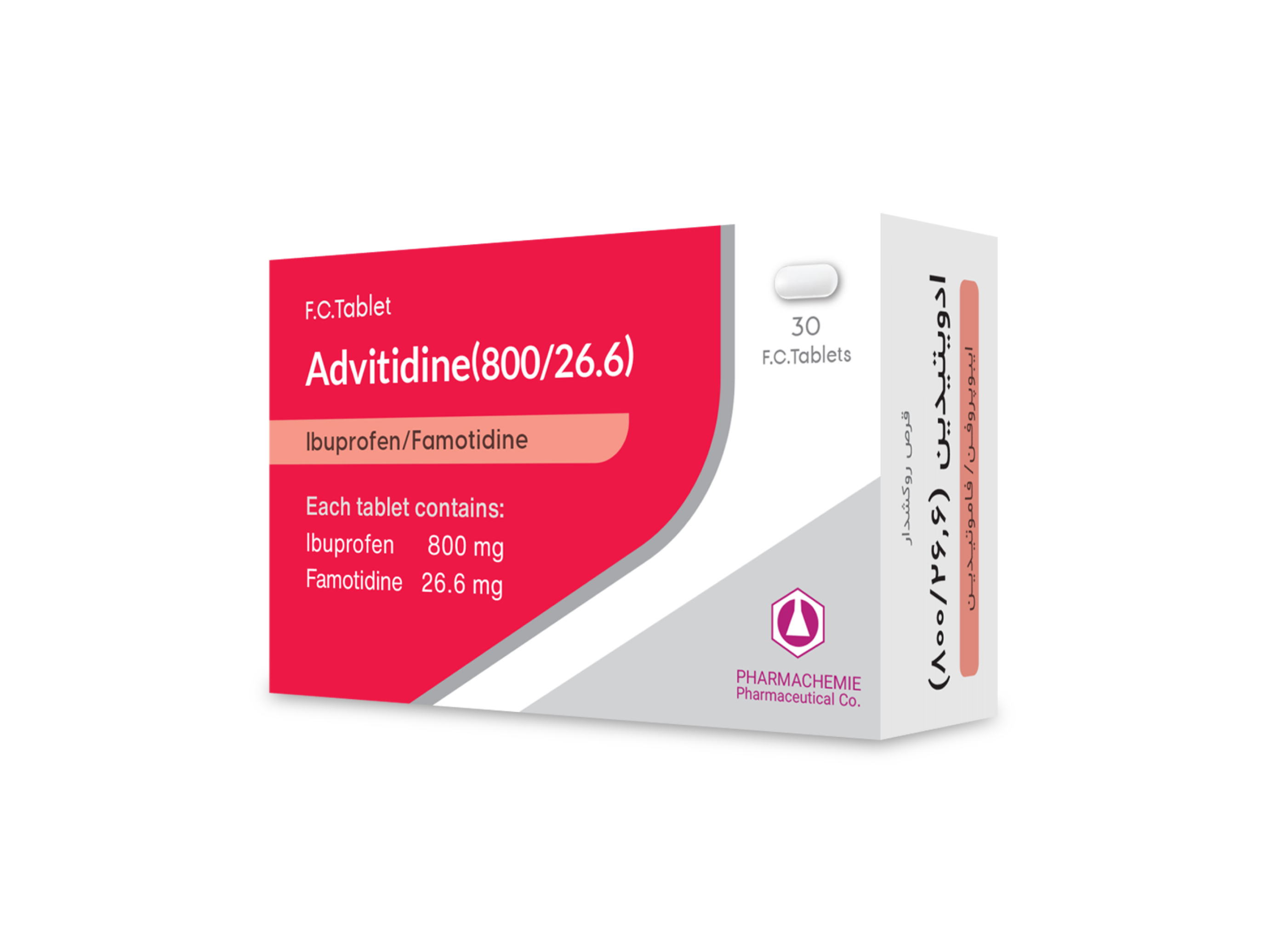Advitidine
Edotidine Coated Tablets
Generic Name: Ibuprofen 800 mg / Famotidine 26.6 mg
Dosage Form: Coated Tablets
Therapeutic Category: Analgesic, Anti-inflammatory
Number in Package: 30 tablets
- Indications
- Mechanism of action
- side effects
- Drug interactions
- Use in pregnancy and breastfeeding
- نظرات
The combination of ibuprofen and famotidine is used to relieve the symptoms of rheumatoid arthritis and osteoarthritis. This drug is used for patients who are at risk of developing stomach ulcers and who need to take nonsteroidal anti-inflammatory drugs (NSAIDs) for arthritis.
Ibuprofen works by inhibiting the enzymes cyclooxygenase (COX) and reducing the production of prostaglandins, which are chemicals that cause pain and inflammation. Famotidine is an H2 receptor antagonist, which means it blocks the effects of histamine, a chemical that stimulates the production of stomach acid.
Common side effects (greater than 1%) include the following:
Nausea
Vomiting
Diarrhea
Constipation
Upper abdominal pain
Headache
Nonsteroidal anti-inflammatory drugs (NSAIDs) can cause serious side effects, including:
Liver toxicity: NSAIDs can damage the liver. Warning signs of liver toxicity include yellowing of the skin and eyes, dark urine, severe fatigue, and loss of appetite.
High blood pressure: NSAIDs can increase blood pressure. Patients taking blood pressure medications may need to adjust their medication dosage when taking NSAIDs.
Heart failure and edema: NSAIDs can worsen heart failure and edema. Patients with these conditions should talk to their doctor before taking NSAIDs.
Active bleeding: Active and clinically significant bleeding from any source may occur. If active bleeding occurs, stop taking the drug.
Renal toxicity: Renal function should be assessed in patients with liver or kidney failure, heart failure, and hypovolemia, and use of this tablet should be avoided in patients with advanced kidney disease.
Anaphylactic shock (allergic shock): In the event of anaphylactic shock, contact emergency services.
Skin sensitivity: Stop the drug at the first sign of skin rashes or other signs of sensitivity.
Hematological toxicity: Monitor hemoglobin or hematocrit.
NSAIDs also increase the risk of cardiovascular-thrombotic events, such as heart attack and stroke.
It is important to talk to your doctor about the risks and benefits of NSAIDs before taking them.
not recommended for use in pregnant women


هنوز نظری ثبت نشده
اولین نفری باشید که نظر میدهید
ثبت نظر